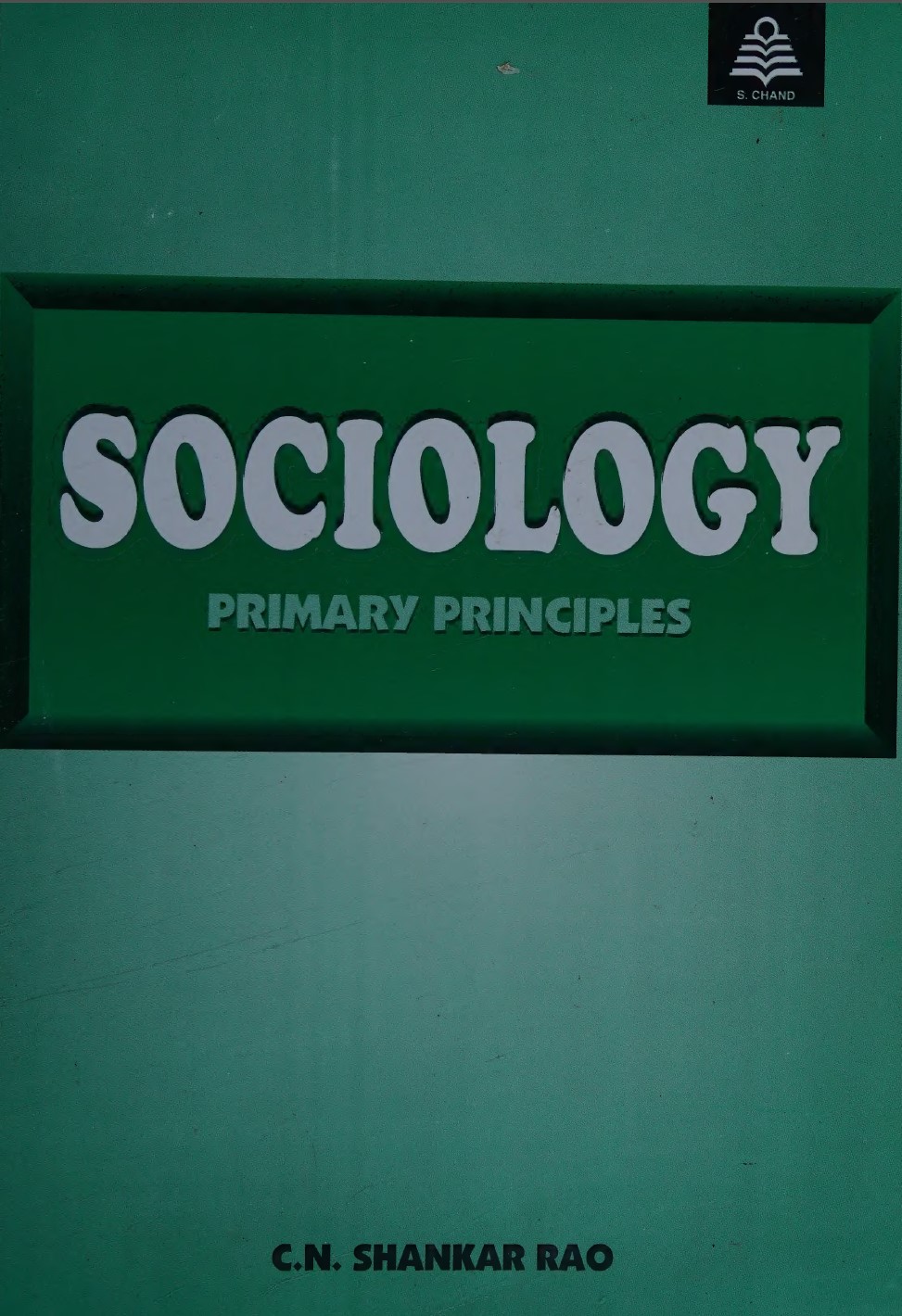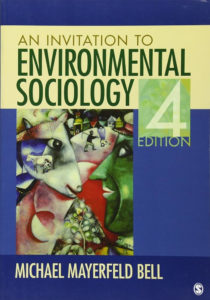Summary
It is a pleasurable task to present the third Enlarged and Revised Edition of Sociology. Primary Principles after eight successful reprints within the time span of nine years eversince its first publication in 1990: This encouraging reception only reveals the acute necessity of such a comprehensive reference-cum-textbook. I am greatly indebted to the students and teachers and also general readers who have directly or indirectly contributed to the success of this book. I also convey my gratitude to the Boards of Studies of Sociology of the Mysore University, Karnataka University, Kuvempu University and Gulbarga University of Karnataka State and also to a few other universities all over the country for having included this book in the list of reference books.
The revision of this book has been long overdue. I am happy that it is completed now. It is also enlarged to cover a few more topics that are found in the syllabi of I.A.S. and K.A.S. Examinations. Three new chapters namely, “Marriage in India,” “Kinship System,” and “Corruption and Black Money in Society” are added to the existing book, while “Educational System” and “Economic System” are developed into two independent chapters by covering a few more areas in the respective topics. The book now consists of eleven parts and fifty chapters. Some of the other chapters are also enriched with more detailed information. These inclusions, I hope, will benefit still greater a number of readers.
It is my pleasant duty to express my thankfulness to all those who have assisted me and encouraged me in bringing out the Third Enlarged Version of this book. I thank with gratitude all those people belonging to different parts of the country, for having shown much interest in my book and given suggestions to improve the same. My thanks are specially due to Sri Vipin Kumar Gupta, the Branch Manager of S. Chand & Company Ltd., Bangalore, without whose consistent pursuance the revision work would not have been completed even now. I thank M/s S. Chand & Company Ltd. for having brought out the new edition of this book at the earliest. Suggestions to improve this book are always welcome.
C.N. SHANKAR RAO
Contents
-
PART I — INTRODUCING SOCIOLOGY
-
Introduction
Science is Knowledge — Classification of Sciences: Physical Sciences and Social Sciences — Social Sciences are less exact — The Necessity for Social Sciences — Sociology as a Social Science — Emergence of Social Sciences: A Brief Historical Background — New Intellectual and Philosophical Tendencies and Their Impact on the Development of Social Sciences — Development of Different Social Sciences — Sociology: A Glimpse — The Beginnings of Sociology — Characteristics of Early Sociology — Establishment of Sociology as a Science — Contributions of Auguste Comte, Herbert Spencer, Karl Marx, Emile Durkheim and Max Weber — Sociology in India — The Ultimate Goals of Sociology.
-
Definition, Scope and Uses of Sociology
Definition of Sociology — Nature of Sociology — Subject Matter and Scope of Sociology — Importance of Sociology — Three Major Theoretical Perspectives: Functionalist, Conflict, Interactionist — An Evaluation.
-
Some Branches of Sociology
Historical Sociology — Sociology of Knowledge — Sociology of Law — Human Ecology — Sociology of Education — Political Sociology — Sociology of Economic Life — Sociology of Occupations — Sociology of Religion — Rural Sociology — Industrial Sociology — Urban Sociology.
-
Methods of Sociology
Comparative Method — Historical Method — Statistical Method — Case Study Method — Functional Method — Scientific Method — Limitations of the Scientific Method in Sociology — Scientific Viewpoint — Sociology as a Science — Sociological Point of View.
-
Social Research: Methods and Techniques
Meaning and Importance — Difficulties in Sociological Research — Observation: Types, Merits and Limitations — Questionnaire: Meaning, Types, Advantages and Limitations — Interview: Types, Advantages and Limitations — Social Survey: Sample Methods — Other Methods: Sociometry, Experimental Method, Hawthorne Effect, Verstehen Approach.
-
Sociology and Other Social Sciences
Sociology and History — Sociology and Political Science — Sociology and Anthropology — Sociology and Social Psychology — Sociology and Economics — Sociology and Education — Sociology and Philosophy — Sociology and Ecology — Sociology and Criminology.
-
The Study of Human Society
Basic Features of Society — Societal Needs — Bio-Social Systems.
-
PART II — BASIC SOCIOLOGICAL TERMS
-
Some Basic Concepts
Society — Community — Association — Institution — Social System — Social Action (Weber’s Typology).
-
Role and Status
Meaning, Nature and Types — Ascribed and Achieved Status — Power, Prestige and Position.
-
Power, Status and Authority
Meaning — Types of Authority — Authority and Status.
-
Social Structure and Function
Elements of Social Structure — Anthropological Perspectives — Concept of Function — Functionalism — Prerequisites — Manifest and Latent Functions — Dysfunctions.
-
PART III — INDIVIDUAL, CULTURE AND SOCIETY
-
Individual and Society
Sociality of Man — Theories of Society (Social Contract, Organismic) — Man and Society.
-
Heredity and Environment
Personality differences — Types of Environment — Role of Heredity and Genes — Experiments on Heredity vs. Environment.
-
Individual and Communities
Rural and Urban Communities — Characteristics — Problems — Rural-Urban Contrast — Convergence.
-
Culture
Meaning, Characteristics, Functions, Elements — Subculture — Cultural Change — Diffusion, Invention, Discovery — Culture vs. Civilization.
-
Socialisation and Culture
Process and Theories (Cooley, Mead, Freud, Thomas, Durkheim) — Agents — Failures of Socialisation.
-
Social Groups
Meaning, Characteristics, Importance — Primary and Secondary Groups — Organised and Unorganised Groups — Crowd, Public, Reference Groups.
-
Social Processes
Social Interaction — Co-operation — Competition — Conflict — Accommodation — Assimilation.
-
Organisation and Individual
Formal and Informal Organisations — Bureaucracy — Role of the Individual.
-
PART IV — SOCIAL INEQUALITY
-
Social Differentiation and Stratification
Causes — Sex, Age, Occupation — Origin — Mobility — Functions.
-
Caste, Estates and Class
Caste in India — Estates System — Social Class — Marxian Analysis.
-
Social Mobility
Sanskritisation — Westernisation — Modernisation — Comparative Views.
-
PART V — SOCIAL INSTITUTIONS
-
Marriage
Meaning, Functions, Types — Polyandry, Monogamy.
-
Marriage in India
Hindu Marriage — Muslim Marriage — Divorce — Recent Trends.
-
Family
Meaning, Functions, Types — Nuclear, Joint, Patriarchal, Matriarchal — Disintegration of Joint Family.
-
Kinship System
Principles, Descent, Kinship Usages (Avoidance, Joking, Teknonymy, Avunculate, Amitate, Couvade).
-
Educational System
Education and Social Change — Stratification and Mobility — Equality of Opportunity — Modernisation.
-
Economic System
Work, Occupations, Property, Division of Labour, Industrialisation — Capitalism — Socialism — Multinational Corporations — Jajmani System — Economic Development.
-
Political System
Democracy, Totalitarianism, Dictatorship, Welfare State — Parties — Voting — Pressure Groups.
-
Religion, Morality and Magic
Religion: Components, Origins, Roles, Functions — Morality: Meaning, Differences with Religion — Magic: Definition, Types, Relation with Religion and Science.
-
PART VI — SOCIAL CONTROL
-
Meaning and Nature
Types: Formal and Informal — Agencies: Law, Education, Public Opinion, Propaganda, Coercion, Customs, Religion, Morality, Sanctions.
-
Folkways, Mores, Customs and Sanctions
Definitions, Nature, Functions, Differences — Positive and Negative Sanctions.
-
Social Norms and Values
Characteristics — Conformity and Violation — Institutionalisation — Norms in Multigroup Society — Anomie — Functions of Values.
-
Social Conformity and Deviance
Causes of Conformity — Types of Deviance — Factors — Significance of Deviant Behaviour.
-
PART VII — SOCIAL CHANGE
-
Meaning and Nature
Characteristics — Causes — Resistance — Evolution — Progress.
-
Theories and Factors
Evolutionary, Cyclical, Functionalist, Conflict — Geographic, Biological, Cultural, Technological Factors — Education and Legislation.
-
PART VIII — COLLECTIVE BEHAVIOUR AND SOCIAL MOVEMENTS
-
Collective Behaviour
Meaning, Characteristics, Theories — Mass Behaviour: Rumours, Panics, Fashions, Crowds, Mobs, Riots, Public Opinion, Propaganda.
-
Social Movements
Concept, Types, Conditions — Theories: Relative Deprivation, Strain, Revitalisation — Relation to Social Problems and Change.
-
PART IX — SOCIAL DISORGANISATION AND SOCIAL PROBLEMS
-
Social Disorganisation
Causes, Characteristics, Remedial Measures.
-
Juvenile Delinquency, Youth Unrest and Problems of the Aged
Causes, Types, Remedies.
-
Population and Beggary
Overpopulation in India — Measures — Population Policy — Beggary: Types, Causes, Remedies.
-
Poverty
Absolute and Relative Poverty — Magnitude in India — Anti-Poverty Programmes.
-
Unemployment
Types, Causes, Effects, Remedies.
-
Problems of Under-Privileged Groups
Scheduled Castes, Scheduled Tribes, Backward Classes — Issues, Movements, Welfare Measures.
-
Corruption and Black Money
Causes, Effects, White-Collar Crime — Prevention — Black Money: Meaning, Causes, Effects, Control.
-
PART X — APPLIED SOCIOLOGY
-
The Problem of Order
Concept, Approaches, Unity of Society.
-
Applied Sociology
Pure vs. Applied — Scope — Social Policy — Social Planning — Applications.
-
PART XI — SOCIAL THOUGHT
-
Contributions of Comte and Spencer
Comte: Life, Law of Three Stages, Religion of Humanity — Spencer: Sociology, Evolution, Contributions.
-
Contributions of Durkheim and Weber
Durkheim: Division of Labour, Suicide, Method, Religion — Weber: Sociology of Religion, Bureaucracy.
-
Karl Marx and His Social Thought
Life, Class Conflict, Alienation, Social Change — Contributions and Criticisms.
Bibliography
Extract
Sociology is the the youngest of the Social Sciences. Its major concern is society, and hence it is popularly known as the “Science of Society”. But, if we are to understand the entire scope of the subject, how it is to be studied, what sociologists do, how they do, what methods they follow, what problems they face in their studies, it is necessary to know the meaning of Science and the classification of sciences into physical and social.
Like all other social sciences, sociology also is concerned with the life and activities of man. It studies the nature and character of human society, and also its origin, and development, structure and functions. It analyses the group life of man and examines the bonds of social unity.
Sociology tries to determine the relationship and inter-dependence between different elements of social life; between the moral and the religious, the economic and political, the intellectual and the philosophical and the artistic and the aesthetic, the scientific and the technological, and non-material and so on.
Sociology also discovers the fundamental conditions of social stability and social change. It analyses the influence of economic, political, technological, cultural and other forces and factors on man and his life. It endeavours to examine the influence of biological and geographic factors on man also. It throws more light on various social problems like poverty, beggary, over-population, crime, unemployment, etc.
Author
C. N. Shankar Rao is a distinguished Indian sociologist, educator, and prolific author from Karnataka. He served as a professor of sociology at Canara Pre-University College, Mangalore, dedicating nearly five decades to teaching and inspiring generations of students. Rao has authored more than 115 books in both Kannada and English, many of which are prescribed as reference texts by universities across Karnataka. His notable contribution includes the two-volume Mini Encyclopedia of Sociology (Samaja Shastrada Kiru Vishwakosha) in Kannada, comprising over 3,000 pages—a pioneering work in Indian vernacular sociology. In recognition of his scholarship, Mangalore University awarded him a D.Litt. degree in 2019. Beyond academia, he has played active roles in cultural and literary organizations at the state level.
Book Details
| Title |
Sociology Cn Shankar Rao |
| Subtitle |
Primary Principles of Sociology with an Introduction to social Thought |
| Author |
Cn Shankar Rao |
| Publisher |
S. Chand and Company Ltd |
| Date |
2004 |
| Pages |
695 |
| Country |
India |
| ISBN |
8121910366 |
| Format |
PDF |
| Filesize |
54.4 MB |
| URL |
Cn Shankar Rao Sociology Cn Shankar Rao pdf |




